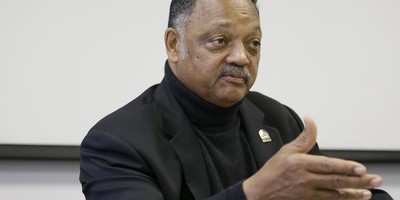Since my last column on academic hypocrisy several readers have written to express the view that intolerance toward conservative Christians is the only form of intolerance that academics are willing to tolerate. Such a view seems reasonable at first glance. Upon further reflection it misses the mark. Tolerance presupposes a) a moral judgment against something and b) the choice to permit it. Hence, my readers’ views are overly charitable. In order to elaborate, I ask my readers to imagine the following thought experiment:
The Dean of Journalism at a large public university refuses to sponsor a speaker as a part of a distinguished lecture series. In an email to the series benefactor, the Dean provides five reasons for the refusal. His words are reprinted below:
- In his public commentary, the speaker appeared to be siding with the Mexicans in recent immigration controversies.
- In his public commentary, the speaker appeared to be siding with the blacks in recent police brutality cases.
- In his public commentary, the speaker appeared to be siding with the Jews in recent conflicts in the Middle East.
- In his public commentary, the speaker appeared to be siding with the homosexuals in recent religious liberty cases.
- In his public commentary, the speaker appeared to be siding with Christians in the ‘culture war.’
If such an email were sent and somehow leaked to the general public, the reaction would be swift and severe. Virtually every member of the university faculty would condemn statements one through four. This would be followed by calls for the Dean’s removal. In other words, the faculty at a public university simply would not tolerate the first four statements.
But would faculty at a public university tolerate the fifth statement? I may surprise my readers by arguing that such a statement would not be tolerated. Granted, there would be no condemnation of the fifth statement. But the reasons for the silence, which would be twofold, would place them squarely outside the definition of tolerance:
Recommended
- The faculty and administration would overwhelmingly approve of the statement.
- Those who disapproved would remain silent only due to a fear of reprisal.
Understanding that the first of these reasons falls outside the definition of tolerance is easy when we remember that it is impossible to tolerate something we like. For example, a man might like Led Zeppelin and hate show tunes. Thus, it is possible for the man to tolerate his wife’s decision to play show tunes on her CD player when they go on road trips. In contrast, he cannot “tolerate” her decision to play Led Zeppelin since he likes their music.
The idea that the second of these reasons falls outside the definition of tolerance is easy to understand once we recognize that tolerance requires more than merely refraining from outward behavior. It involves actively adopting a permissive attitude. In some situations, people may actually be seething inside although unwilling to act publicly on their emotions. Thus, they can be classified as exhibiting superficial and coerced conformity rather than genuine and freely chosen toleration. It cannot be said that anyone truly permits something in the face of coercion.
In the very real case in which I was just involved, and upon which today’s thought experiment is based, there has been an outpouring of support from students. After the University of Montana (UM) Dean of Journalism rejected my selection as the 10th annual Jeff Cole distinguished lecturer, numerous students wrote me to apologize. They were frankly shocked and embarrassed that a Dean at their university would openly reject someone for the crime of siding with Christians in the current culture war. In contrast, not a single member of the faculty or a single administrator from UM has expressed shock or embarrassment, much less an apology. This is easy to explain.
For most UM faculty and administrators, anti-Christian bigotry is acceptable. In fact, going along with it is fashionable and wins them points in academic circles. Those who don’t accept it keep it to themselves. They fear becoming outcasts for siding with Christians in the current culture war.
I leave it to my readers to determine which of those two reasons best explains UM President Sheila Stearns’ refusal to condemn the overt religious bigotry of Dean Larry Abramson.

























Join the conversation as a VIP Member